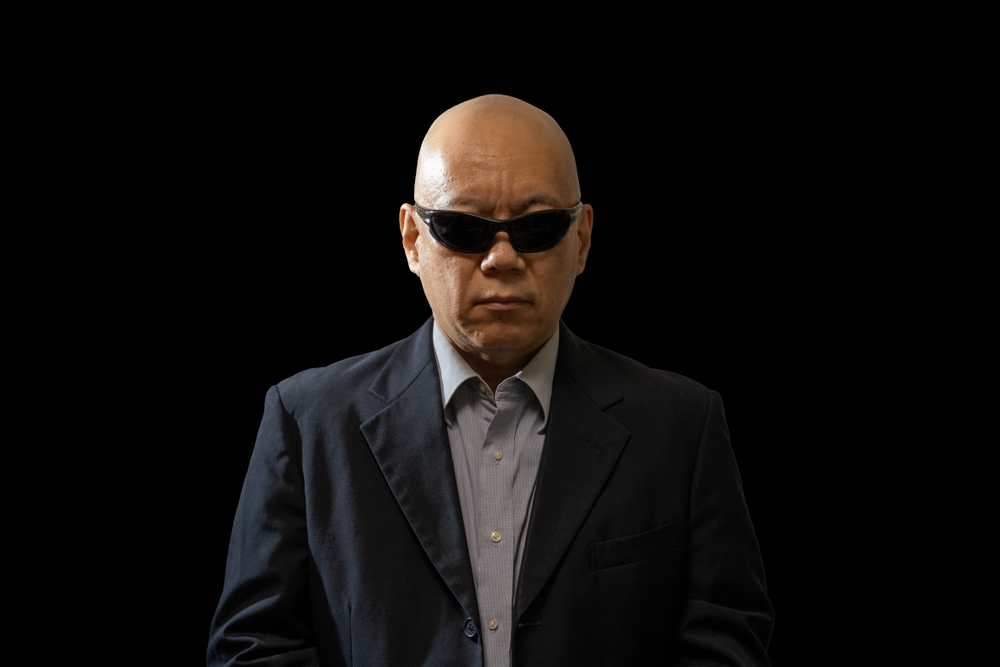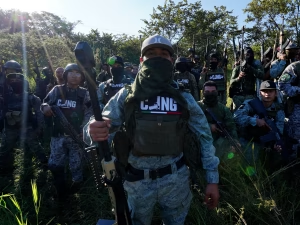Yakuza Boss Takeshi Ebisawa Admits Role in Trafficking Nuclear Materials from Myanmar.
A Japanese Yakuza leader has admitted guilt in a United States court for his role in a conspiracy to traffic nuclear materials originating from Myanmar. Takeshi Ebisawa "brazenly trafficked nuclear material, including weapons-grade plutonium," acting US attorney for the Southern District of New York Edward Y Kim said.
"At the same time, he worked to send massive quantities of heroin and methamphetamine to the United States in exchange for heavy-duty weaponry such as surface-to-air missiles to be used on battlefields in Burma," he added. He further elaborated. The 60-year-old individual from Japan was indicted in February 2024 on charges related to his conspiracy to traffic nuclear materials, which were anticipated to be utilized in Iranian nuclear armament.
Latest: Birmingham Rapper found guilty of sharing a threatening video aimed at Tommy Robinson
He had previously faced charges in 2022 concerning international drug trafficking and firearms violations. Ebisawa now confronts the prospect of spending decades in prison. During the investigation, Ebisawa inadvertently connected an undercover agent from the U.S. Drug Enforcement Administration (DEA), referred to as UC-1, with his "global network of criminal associates," which extended across Japan, Thailand, Myanmar (also known as Burma), Sri Lanka, and the United States, among other regions, according to court documents.
Through UC-1, Ebisawa plotted to acquire U.S.-manufactured surface-to-air missiles and other heavy weaponry, partially in exchange for narcotics. Prosecutors indicated that he also attempted to sell 500 kilograms of methamphetamine and 500 kilograms of heroin for distribution in New York. The 'Iranian general' Starting in early 2020, Ebisawa informed UC-1 that he had access to a "substantial quantity of nuclear materials" that he intended to sell, as per court records. The nuclear materials were sourced from an unnamed leader of an "ethnic insurgent group" in Myanmar, who had been engaged in uranium mining, according to prosecutors. Ebisawa provided photographs of a substance accompanied by Geiger counters measuring radiation levels, along with documents he claimed were laboratory analyses confirming the radioactivity of the material.
UC-1 consented to assist Ebisawa in facilitating the sale of nuclear materials to an individual impersonating an Iranian general, referred to as the General. Prosecutors indicated that Ebisawa proposed to provide the General with what he claimed was plutonium, asserting that it was superior and more potent than uranium. During a video conference on February 4, 2022, one of Ebisawa's accomplices asserted possession of over 2,000 kg of Thorium-232 and more than 100 kg of uranium.
Further meetings were conducted as Ebisawa sought to finalize the transaction. However, he was subsequently apprehended in a coordinated operation involving authorities from the United States, Indonesia, Japan, and Thailand. He entered a guilty plea in Manhattan, New York, with sentencing scheduled for April 9.





















